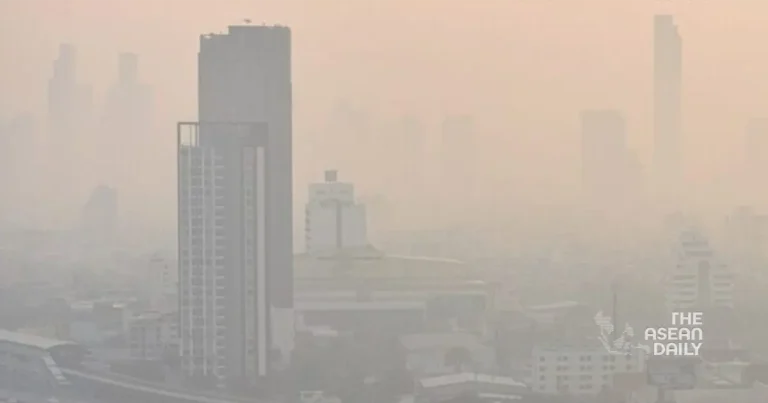24-1-2025 (BANGKOK) Thai authorities have ordered the closure of over 350 educational institutions across the capital due to hazardous air quality levels, marking the highest number of school closures in five years. The Bangkok Metropolitan Administration confirmed the shuttering of 352 schools spanning 31 districts as the city grapples with severe air pollution.
In response to the crisis, city officials have announced a week-long free public transport initiative starting Saturday, aimed at reducing vehicular emissions in the congested metropolis. The scheme encompasses the capital’s Skytrain, underground metro, light rail system, and bus services, Transport Minister Suriya Juangroongruangkit announced.
The current pollution crisis has seen PM2.5 levels—microscopic particles capable of entering the bloodstream through the lungs—soar to 108 micrograms per cubic metre, according to IQAir measurements. This reading positions Bangkok as the world’s seventh most polluted major city, far exceeding the World Health Organisation’s recommended safe exposure limit of 15 micrograms per cubic metre.
Local residents are feeling the impact. “Breathing has become difficult, and the irritation in my throat is quite severe,” says Benjawan Suknae, a 61-year-old street vendor.
The situation has prompted swift governmental action, with Interior Minister Anutin Charnvirakul implementing a strict ban on agricultural stubble burning, threatening legal consequences for violators. Prime Minister Paetongtarn Shinawatra, speaking from the World Economic Forum in Switzerland, called for enhanced measures, including construction restrictions in Bangkok and increased regional cooperation.
The crisis extends beyond Thailand’s borders, with neighbouring Vietnamese and Cambodian cities also ranking high on global pollution indices. Ho Chi Minh City and Phnom Penh currently stand at second and fifth positions respectively on IQAir’s most polluted cities list.
This environmental emergency coincides with UNICEF’s latest report, which reveals that climate-related disruptions affected the education of 242 million children globally in 2024. The report emphasises how climate change can exacerbate air pollution, characterising it as a secondary impact of climate-induced hazards.
The severity of the situation has led to the implementation of various mitigation strategies, including a voluntary work-from-home scheme. “There’s a pressing need for greater public awareness and possibly an expanded work-from-home policy,” suggests Wisut Kitnarong, a 59-year-old freelance worker.




